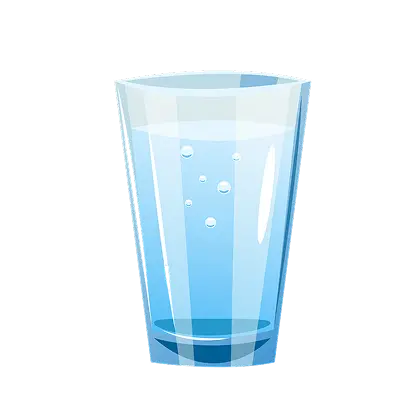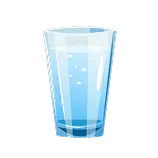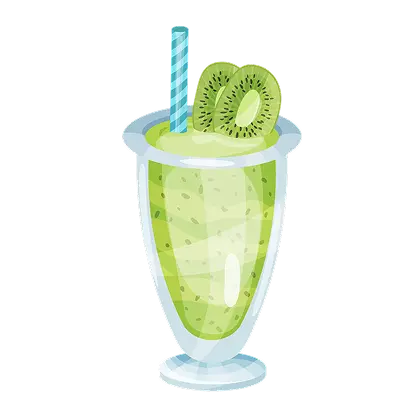

Water (noun) — A colorless, tasteless liquid for drinking, cooking, washing and other household needs, and is a necessary condition for the existence of people, animals and plants. This word is also often used to refer to a body of water or part of it, such as a pond, lake, sea, or ocean.
How to Pronounce “Water”?
In American English, pronounce the soft “d” sound and a distinct “r” sound like “wah-der”. In British English, the “t” sound may be more pronounced and the “r” sound less pronounced as “waw-tuh”.
Level up your English with Koto!
Examples: How to Use “Water” in a Sentence?
Water is the source of life, which means it is present in almost every moment of our existence. And there are a number of striking examples of what water means:
What Are Synonyms for the Word “Water”?
Water is pretty self-sufficient, but in diverse real-world moments, we can look at it from different angles — try it yourself!
Related nouns: liquid flood moisture drop rain river
Synonyms (contextual): H₂O flood aqua
Common collocations: boil water fresh water a glass of water water bottle flood of water
“Water” Word Formation and Description in Context
Try to live even a day without using this word — we are sure you will not succeed! And therefore, it is worth looking at the compounds that water in English forms most often.
With adjectives: sparkling water deep water clean water boiling water
With verbs: spill water purify water absorb water dive into water
With nouns (noun + noun): water pipe water quality water drop water bottle
Idioms and Phrases with “Water”
On the whole, the meaning of water is very clear, but in some expressions you can use it, giving it completely new features and shades to make your speech more expressive.
-
Like water off a duck’s back — most often it means criticism directed at a person, to which he does not react at all and does not change anything in his behavior.
No matter what I told him about his behavior, he didn’t change – likewater off a duck’s back! -
Water under the bridge — situations or difficulties that happened so long ago that they’re no longer worth remembering because nothing can be changed.
I did have differences with him, but that’swater under the bridge now. -
In deep water — to be in a difficult or awkward situation.
It looks like this mistake really got you into deepwater . -
Test the water — this may mean trying to figure out what kind of reaction your words or actions will have before you say or do something.
Mark should have been more careful and tested thewater before voicing his opinion. -
Like a fish out of water — to feel uncomfortable in an unfamiliar or unusual situation.
I don’t want to go to this party because I always feel like a fish out ofwater in this company.
Test Your Knowledge of Water Meaning – Quiz Time!
So, after all the explanations on how to say water, are you ready to check if you feel like a fish in water with this word? Then try your hand at the following tasks.
Enjoy personalized learning!
“Water” Word in Other Languages
Regardless of the country and continent, water is part of the daily culture of every society, providing people with refreshing moisture. But each nation calls the word by its own name:
| Language | Word for “Water” |
|---|---|
 Spanish
Spanish |
Agua |
 French
French |
Eau |
 German
German |
Wasser |
Did You Know It? Fun Facts About “Water”
In each small and transparent drop, in fact, there is a whole universe hidden, and our following information will help to better understand the description of water.
-
Mineral water is a natural remedy.
The earliest documented use of mineral water dates back to around 3000 BC in the Mesopotamia region, where people visited springs whose water was believed to have healing properties. However, such water gained real popularity only after the cholera epidemics that raged in Europe. -
Distilled water can cause microwave failure.
Do not heat distilled water in the microwave unless you are planning to upgrade your kitchen appliances. The fact is that distilled water can be heated to a temperature significantly higher than the boiling point, and therefore, cause a fire. -
A person can survive without water for only a few days.
As scientists say, the need for water depends on various factors. Therefore, it is impossible to determine exactly how long a person can survive without water. Dehydration occurs quickly, causing intense thirst, fatigue, and eventually organ failure and death. -
The boiling point is not always 100°C.
At the top of Everest, where the atmospheric pressure is lower, the boiling point of water is only 68°C. Meanwhile, in the deep seas, where the pressure can be 500 times higher than on land, water near hydrothermal vents never boils, despite temperatures above 400°C. -
Ice preserves history and life.
Ice cores from glaciers contain air bubbles, dust and pollen, which allow us to get an idea of the history of the Earth’s climate. And a number of larvae, whose age is estimated at tens of thousands of years, came to life after thawing and even began to reproduce. -
Plastic pollution is flooding our oceans.
Alarmingly, water pollution research shows that more than 8 million tons of plastic waste enter the oceans each year, harming marine life. WWF says that by 2050, the weight of plastic in the ocean could outweigh the weight of fish.
Famous Quotes Featuring “Water”
The easiest way to comprehensively define water is to listen to what famous people have said about it at different times.
Explanation: These words by Leonardo da Vinci emphasize that water is the basis of all known forms of life and is critical to metabolic processes, weather conditions, and maintaining the Earth’s temperature.
— Rabindranath Tagore
Explanation: This quote accents that achieving goals requires action, not just passive observation or contemplation. This means that simply wishing for something or thinking about something is not enough; you need to actively work towards achieving your goals.
Explanation: A saying coined by Benjamin Franklin, it means that people often don’t value something until it’s gone or becomes scarce, highlighting the tendency to take readily available resources for granted until they are faced with a shortage.





